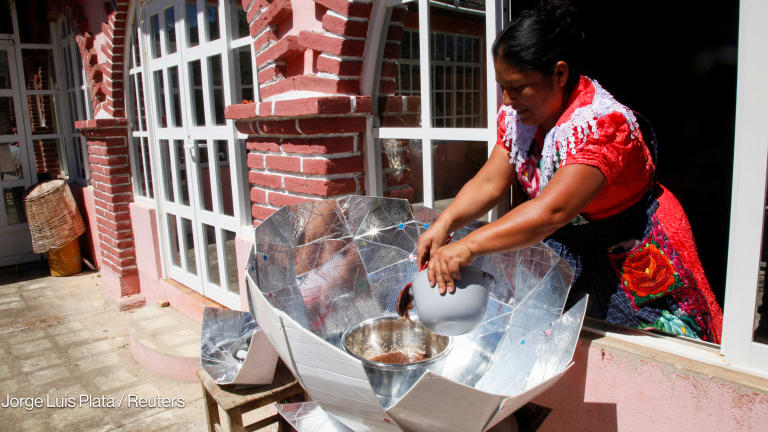
Last week’s release of the fifth report by the U.N. Intergovernmental Panel on Climate Change received extensive international coverage focused around the potential catastrophic impacts of climate change and, hopefully, triggering the “jolt to action” deemed necessary by the IPCC chairman.
Much of the media coverage surrounding the release of the report has focused on the impacts that will potentially be felt in the West — from bad-tasting and expensive coffee to increases in food prices and heat waves.
While this is understandable, it has drawn attention away from what the report had to say on the impact on the hundreds of millions of people currently perched on the precipice of a better life — who, if we fail to curb carbon emissions and assist them in adapting, risk being dragged further into poverty.
The IPCC is categorical about this, stating with high confidence that “major future rural impacts are expected in the near-term and beyond through impacts on water availability and supply, food security, and agricultural incomes … these impacts are expected to disproportionately affect the welfare of the poor in rural areas.”
Water remains the most decisive vector through which climate change will be felt. From the carnage of floods and cyclones, to reduced food production brought about by droughts, the impact of climate change on human lives will be most apparent through either too little or too much water.
Unsurprisingly, it is the 1 in 10 people lacking access to clean water today who are the least equipped to withstand and recover from such events. We face a race against time to reach everyone, everywhere with access to water, sanitation and hygiene before it becomes too difficult, expensive or unsustainable to do so.
Access to such basic services is not only fundamental to a healthy and dignified life today — they are excellent means of increasing resilience to the climatic shocks of tomorrow.
This is exactly where climate change and development come together, and will be intricately linked moving forward. Simply put, without addressing climate change and its impacts, hard won development gains risk being lost, and millions may slip back into poverty. This also risks making the targets within the new Sustainable Development Goals unreachable even before they are decided upon before the Millennium Development Goals expire in 2015.
These interlinkages are already being cited in the negotiations around the new SDGs. A recent letter signed by representatives of nearly a third of U.N. member states calling for a dedicated water and sanitation goal correctly highlighted that “water is also a finite and vulnerable resource under mounting pressure from ... climate change.”
The year 2015 represents a turning point for three parallel and interrelated processes: the UNFCCC climate agreement, the Hyogo Framework for Action (on disaster risk reduction) and the post-2015 SDGs.
The coincidence in timing is too good an opportunity to be missed. It represents the perfect opportunity to send a strong signal that climate change and development will be addressed holistically.
At a minimum, the post-2015 agenda needs to send a strong signal to the government, civil society and private sector actors negotiating the new climate agreement — that climate change is one of the greatest threats ever faced by humanity and nothing less than unified global action will suffice if we are to meet this challenge.
Potentially, the SDGs will go further, much further and fully incorporate climate action into their own framework. It is unclear which way this will go, and debate around this has so far been muted, perhaps because governments recognize that this approach is not without its pitfalls. Climate negotiations have been notoriously fraught with disagreement and conflict, and the temptation to keep the two processes separate is understandable.
Perhaps a safer route is to recognize that climate change is a cross-cutting issue for the post-2015 agenda, affecting all goals, communities, sectors and countries. All the SDGs, including a dedicated universal access goal on water, sanitation and hygiene — which WaterAid is calling for — should be climate-smart, meaning they deliver climate-compatible development that eradicates poverty while reducing carbon emissions and facilitating adaptation and resilience.
Whatever the modality, the global community cannot miss the opportunity that these negotiations and potential agreements provide — to move forward with poverty eradication while agreeing, as one global community, on a plan to reduce carbon emissions and prevent catastrophic climate change. Both must happen, if either is to be attained.
Join the Devex community and access more in-depth analysis, breaking news and business advice — and a host of other services — on international development, humanitarian aid and global health.








